PFSA Regulatory Entity

In this article
The Polish Financial Supervision Authority is known as PFSA. However, it is commonly known as the Polish Financial Supervisory Authority (Financial Supervisory Authority).
This organization is a reputable and honest financial regulator in Poland. They supervise the banking sector, insurance companies, capital markets, pension schemes, and electronic money institutions.
History
KNF began working on 19 September 2006. As a result, the Commission inherited the Insurance and Pension Funds Supervisory Commission and the Securities and Exchange Commission (Poland).
As part of KNF’s expansion, KNF became the Polish financial supervisor in 2008. The Polish FSA has taken over all the Commission for Banking Supervision and the General Inspectorate of Banking Supervision.
As a watchdog, the FSA serves as a single point of contact for all public financial entities. All segments of the Polish financial market are in their sights. Amid the global financial crisis, KNF ensures that Polish banks remain healthy and respond to the bank liquidity measures.
What are the values of the PFSA Regulatory Authority?
Their main values are to ensure an orderly function of the financial market and a safe development. Afterwards, they assure the participants that a financial market is a safe place.
Modern technologies allow them to act proactively and manage knowledge and information. As a result, interactions between supervised entities and market participants are marked by a high degree of trust.
The PFSA takes full responsibility for all its actions and holds itself accountable to everyone. A high level of professionalism and care is displayed in the way they perform their duties.
What are the main objectives?
The main objectives and tasks of the KNF board are:
- Undertaking strict measures for supporting the accurate functioning of the financial market.
- Support those measures which are contributing towards the development of the financial market and its vast competitiveness.
- Educational and informational measures are also performed for the suitable functioning of the financial market.
- Participate in the arrangement of legal drafts, which are about the supervision of the financial market.
Who are the regulators in the Polish financial supervision authority?
Polish financial supervision authorities perform regulatorily, controlling, licensing, and disciplinary functions. They are issuing the license for the cooperative banks, insurance companies, domestic payment centres, investment funds, or open pension funds.
In addition, they are also imposing financial penalties following the law acts and rescinding the license. But, apart from that, it makes recommendations not just for specific entities but for the whole financial market.
PFSA also analyzes the reports provided by financial institutions to determine the capital requirements where they are needed. Within the scope of PFSA competence, it also includes performing some control procedures in the supervised entities.
What is the authorization process and requirements?
In addition to the basic banking activities, the PFSA has its authorization process and requirements to complete the regulation process. Any operation conducted by a credit institution must be reported to the Home Member State.
Foreign investment firms can start brokerage activities in Poland after the PFSA notifies the competent supervisory authority. Then, as planned, the institution is granted a license to perform certain brokerage activities.
In Poland, EMIs, which are electronic money institutions, will begin cross-border activities. It is, however, only possible if the PFSA has informed the supervisory authorities of the home member state.
In addition, they must specify the name, registered seat, address, and payment services the institution will provide.
To obtain any type of regulatory authorization, the firm must apply to the Polish Financial Supervision Authority.
Depending on the type of application, the cost will vary. It ranges from PLN600 (approx. €140) to PLN13, 000 (approx. €3,000). A bank’s application fee for authorization of banking activity will be equal to 1% of its share capital.
Individuals and authorized forms have already been listed on the official website.
What are the compliance requirements?
Authorized firms are also subject to a few ongoing compliance requirements. The threshold conditions are included in this. In these conditions, the firm should have basic and adequate financial resources and compliance arrangements.
PFSA has the authority to impose sanctions on firms that violate the threshold conditions or do not follow them. As a result, firms may even lose their regulated status as well.
Performing regulated activities without PFSA authorization is a criminal offence. The firm can even be fined or imprisoned.
On-site examination manual by PFSA
PFSA develops an on-site examination manual for proper banking supervision. This manual is followed for regulating and supervising all the entities that are under the jurisdiction of PFSA.
The main objective of this manual is to verify that the funds on the bank accounts are safe. Furthermore, it ensures that the banking activities are carried out according to certain laws regulated by PFSA.
An examination is one of the major tools the PFSA uses to supervise banking activities.
You will also find all the systematic principles for conducting an effective examination of banking activities in this manual.
In addition, the guidelines from the Basel Committee for Banking Supervision and the Committee of European Banking Supervisors (CEBS) outline all the key principles of regulation and supervision.
The manual guide contains a list of issues to be considered when reviewing the ongoing performance of banking sectors.
In addition, the final manual report provides detailed explanations of all the steps involved in preparing for the examination, conducting the examination, and achieving the final results.
This manual guide is not suitable for larger banks because they are continuously involved in complex activities. Combinations of smaller and larger banks are proposed. As a result, you will not find all the banking institution issues in the manual guide.
Bottom line
Overall, it is clear that PFSA is performing the supervision activity in various sectors, such as pension markets, banking, and capital markets. Their primary objective is to operate a proper financial market to protect themselves.
In addition, different activities are undertaken for the paramount development of financial markets.
Jason Morgan is an experienced forex analyst and writer with a deep understanding of the financial markets. With over 13+ years of industry experience, he has honed his skills in analyzing and forecasting currency movements, providing valuable insights to traders and investors.
Forex Content Writer | Market Analyst
Relevant Posts

JSE Regulatory Entity
[top_three_brokers] The Johannesburg Stock Exchange (formerly known as the JSE Securities Exchange) is the largest…
Read more

IFSC Regulatory Entity
[top_three_brokers] The IFSC refers to the International Financial Services Commission as an agency of the…
Read more

CFTC Regulatory Entity
[top_three_brokers] Trading in futures contracts has rapidly extended beyond conventional physical and agricultural commodities into…
Read more

MFSA Regulatory Entity
[top_three_brokers] Malta Financial Services Authority- MFSA is the main regulatory body of Malta. It was…
Read more

VFSC Regulatory Entity
[top_three_brokers] The Vanuatu Financial Services Commission is a regulatory organisation that supervises and regulates Vanuatu's…
Read more

NBRB Regulatory Entity
[top_three_brokers] NBRB Regulatory Entity (National Bank of the Republic of Belarus) is the Republic of…
Read more

KROUFR Regulatory Entity
[top_three_brokers] The Financial Market Participants Relations Regulation Commission, KROUFR, is a non-profit regulatory organisation. Its…
Read more

FSC Regulatory Entity
[top_three_brokers] FSC, the Financial Service Commission, is a financial services regulatory body that works under…
Read more

CIMA Regulatory Entity
[top_three_brokers] CIMA, the Cayman Islands Monetary Authority, is a primary regulatory entity of Cayman Island…
Read more

FSPR Regulatory Entity
[top_three_brokers] The Financial Service Providers Register is a regulatory entity that has authority over financial…
Read more

JSE Regulatory Entity
[top_three_brokers] The Johannesburg Stock Exchange (formerly known as the JSE Securities Exchange) is the largest…
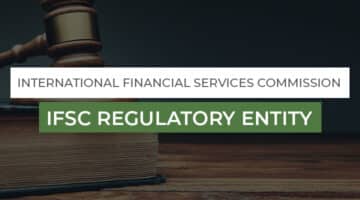
IFSC Regulatory Entity
[top_three_brokers] The IFSC refers to the International Financial Services Commission as an agency of the…

CFTC Regulatory Entity
[top_three_brokers] Trading in futures contracts has rapidly extended beyond conventional physical and agricultural commodities into…

MFSA Regulatory Entity
[top_three_brokers] Malta Financial Services Authority- MFSA is the main regulatory body of Malta. It was…
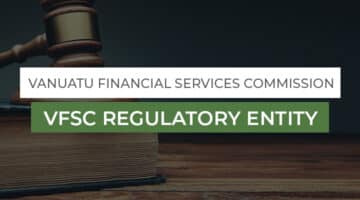
VFSC Regulatory Entity
[top_three_brokers] The Vanuatu Financial Services Commission is a regulatory organisation that supervises and regulates Vanuatu's…
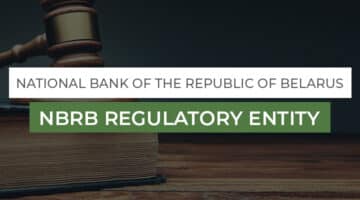
NBRB Regulatory Entity
[top_three_brokers] NBRB Regulatory Entity (National Bank of the Republic of Belarus) is the Republic of…
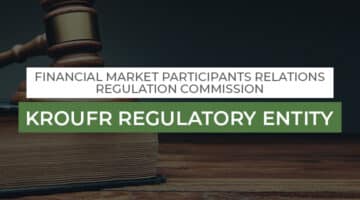
KROUFR Regulatory Entity
[top_three_brokers] The Financial Market Participants Relations Regulation Commission, KROUFR, is a non-profit regulatory organisation. Its…
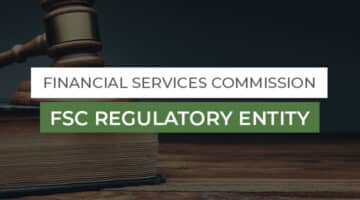
FSC Regulatory Entity
[top_three_brokers] FSC, the Financial Service Commission, is a financial services regulatory body that works under…
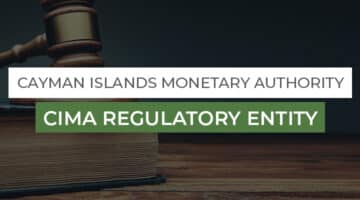
CIMA Regulatory Entity
[top_three_brokers] CIMA, the Cayman Islands Monetary Authority, is a primary regulatory entity of Cayman Island…

FSPR Regulatory Entity
[top_three_brokers] The Financial Service Providers Register is a regulatory entity that has authority over financial…


